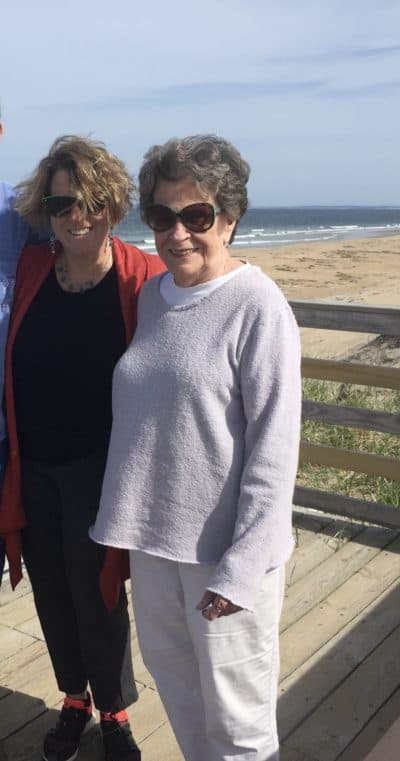Advertisement
Commentary
Grief doesn't have to be so lonely

I was steamrolled by the holidays. All five of our children arrived for several days, along with three of their spouses, one baby, one guest dog and one guest cat. There were feasts and competitive board games, woodsy walks and cocktails. Family tensions, too, but mostly it was wonderful.
Except I couldn’t figure out what to do with my grief.
In the past few years, my husband and I have lost all four of our parents. The rawest, for me, was the death of my mom last year. She was diagnosed with cancer last Christmas Eve, and died before the middle of January. She lived independently until moving in with us the last year of her life. There is, quite literally, an empty room that once was hers.
Many of my friends have been grieving this winter, too, for loved ones lost to COVID or cancer, children to accidents or suicide, parents falling like trees in a storm. I’ve been wondering about our collective sorrow. Why do we only share it in private moments, and never honor our grief together?
During our holiday interlude — after several days of festivities — I lost the ability to hold my emotions in check. My mom, who loved Christmas so much that we had to hide packages from her the same way we used to hide the kids’, was very much gone, and I was very much alone in remembering her.
I’ve been wondering about our collective sorrow. Why do we only share it in private moments, and never honor our grief together?
My children are adults with busy lives now. And anyway, my mom was beloved, but could be difficult, too: outspoken and critical of anyone who exhibited imperfect manners or a lifestyle she deemed “inappropriate.” I doubted my children missed her, their Grandma Sally. Or, if they did, perhaps they were relieved on my behalf that she was gone — they worried about her being a burden on me. Or maybe they were just afraid to talk about her and make me sad.
The thing is, when you’re grieving, you’re sad already. Millions of people know this truth, as we prepare to enter year four of the pandemic. Not talking about grief makes you feel heavy, like you’re moving through deep water and your ears are clogged. This heaviness led me to dwell on the wrong things, like that surreal moment at the cemetery when I turned around as I was leaving, and saw the gravedigger pick up the hand-painted urn I’d bought for Mom’s ashes and spike it into the ground like a wide receiver in an end zone.
I laughed about it afterward, knowing Mom would have, too. Nobody else thought it was funny.
Advertisement

The trouble with grief is that there’s no place for it in our daily lives. We’re expected to have the funeral and move on; society seems to be sending the message: Get over it, already. The only holiday that commemorates our lost loved ones in the U.S. is Memorial Day, and that’s specifically for those who died serving in the military. Why isn’t there a national Grief Day of some sort, like Mexico’s Day of the Dead (el Dia de los los Muertos) celebrations, during which families share stories about their deceased loved ones, eat sugar skulls, and even hold parties in cemeteries? Or like the Chinese festival of Qingming, where people sweep the tombs clean, and offer tea and food to the dead?
What are Americans afraid of, I wonder? We’re seemingly happy to watch any number of murder mysteries or documentaries about serial killers. But, when it comes to the death of our loved ones and how much we miss them, we’re as silent as the proverbial tomb. Is it a fear of death that silences us? Are we sidestepping the scary unknown, because so many of us have fallen out of step with religion? Or maybe we're simply terrified of losing control, of not being able to stop our tears if we dare to let them fall.
But what if the opposite happened? What if, by sharing the memories of those we have lost and by being willing to laugh and cry together, we were healed?
Eventually I reached the point during the holidays where I had to chase everyone out of the family room and hole up in front of the TV, weeping while watching the darkly brilliant, Academy-award nominated “Banshees of Inisherin.” (If you ever need an excuse to cry while mourning someone, this is the perfect dark comedy to keep you company, since one of the main themes is the terror of being forgotten after you die.)
Now that the holiday decorations are down, the children have gone back to their lives, and I’ve resumed work, I feel better, but I wonder where I’ve left my grief. It’s too important to lose entirely.
The writer Ocean Vuong told Terri Gross on Fresh Air that grief is the last act of loving someone. I hope my grief will be like the crocuses I start waiting to see bloom after winter, those flowers that come back every year, sweet and small, as reminders that we, too, are part of nature’s cycle. I will point them out to friends, and say, “My mother used to love the spring.”
